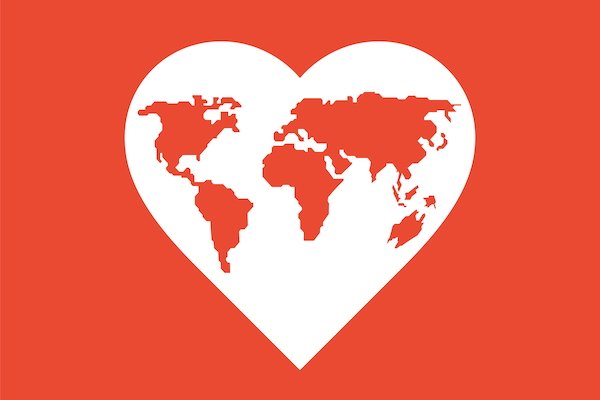
On Tuesday 19 August 2025, Luxembourg marked World Humanitarian Day by reaffirming its commitment to protecting civilians, supporting aid workers and funding life-saving operations.
The international day, observed each year on 19 August, sees Luxembourg and other nations pay tribute to those who assist people in crises and recalls the 2003 attack on the United Nations headquarters in Baghdad.
In its press release, the Luxembourg Government reported that this year’s “ActForHumanity” campaign highlights three urgent priorities: safeguarding humanitarian personnel and civilians; ensuring respect for international humanitarian law (IHL); and financing operations that save lives.
The government noted that the United Nations (UN) faces the most severe funding crisis in its history. At the start of 2025, the UN appealed for $45 billion to assist 177 million vulnerable people across more than 70 countries. By mid-year, governments and donors had provided only 16% of the required funds.
The UN’s Office for the Coordination of Humanitarian Affairs (OCHA) responded by narrowing its operations to the most urgent needs. As a result, the agency now seeks $29 billion to support 114 million people – a sharp reduction from its original target. To illustrate the imbalance, the figure represents just 1% of global military spending in 2024.
In this context, Luxembourg pledged solidarity with vulnerable populations. So far in 2025, the country has delivered nearly €31 million in humanitarian aid to 24 countries, including Syria, the Occupied Palestinian Territories, Ethiopia, Mali and Afghanistan.
Furthermore, the government reported that over the past year Luxembourg strengthened its impact-driven humanitarian policy. In Gaza, the emergency.lu satellite communication system worked with the World Health Organization and the EU Civil Protection Mechanism to carry out medical evacuations and transfers. These included the evacuation of an infant in January, patient transport in March and patient reception in Luxembourg in April 2025.
In Farchana, Chad, close to Darfur, Luxembourg installed coordination and communication facilities for humanitarian actors. Following Cyclone Chido, which struck Mayotte in December 2024, the government deployed two emergency.lu units to re-establish critical communications.
Luxembourg also mobilised resources for Myanmar after the 28 March 2025 earthquake. Through the EU Civil Protection Mechanism, it provided 270 tents, 294 family cooking kits, 1,360 thermal blankets and 50 portable latrines to strengthen health and hygiene services.
According to the government, international humanitarian reform advanced in 2024, particularly in support of local actors. OCHA’s pooled funds backed a record number of local and national organisations and increased the share of funding delivered directly to them. Luxembourg, which has contributed to these funds since 2010 and now supports sixteen of them, welcomed this “as local as possible, as international as necessary”approach.
Luxembourg also promoted innovation as a tool for faster and more effective action. With UNOSAT, it funded emergency mapping within 24 to 72 hours, assessing damage to buildings in Lebanon and Gaza and monitoring cultural and natural heritage sites in Mozambique and Myanmar.
A partnership involving the World Food Programme (WFP), CERN and the Luxembourg Institute of Science and Technology (LIST) aims to apply artificial intelligence to humanitarian decision-making. The system accelerates data-driven scenarios and improves responses to acute food insecurity.
In cooperation with UNHCR and LIST, Luxembourg also invested €1 million between 2024 and 2025 in the EWERS (Early Warning and Effective Response System) project. The initiative develops early warning tools to detect risks of forced displacement, trigger alerts and mobilise resources more efficiently.
Moreover, Luxembourg also raised concern about rising violations of international humanitarian law. According to UN figures, 2024 was the deadliest year on record for aid workers, with 382 killed. By mid-2025, conflicts had already claimed the lives of 247 humanitarian staff, including 155 in the Occupied Palestinian Territories.
Luxembourg’s Minister for Foreign Affairs and Foreign Trade, Xavier Bettel, stated: “Every unpunished violation fuels a cycle of violence. Luxembourg will continue to defend compliance with international humanitarian law in the Security Council, the General Assembly and the Human Rights Council. Protecting civilians and humanitarian staff is not optional – it is an obligation.”
The government urged the international community to act decisively. “If we cannot safeguard those who save lives, we forfeit our humanity. Act – or be complicit,” the statement concluded.








